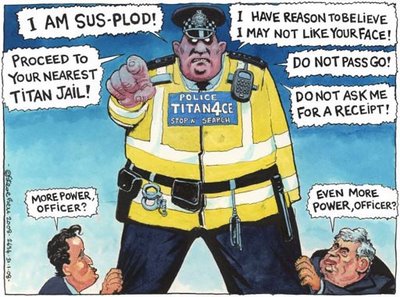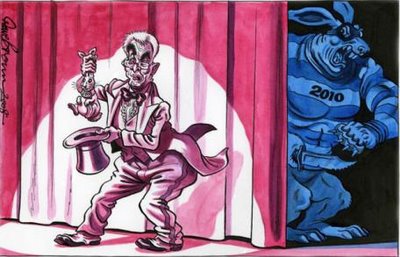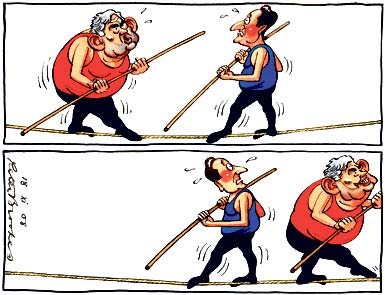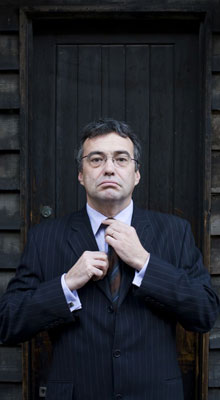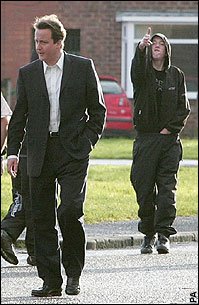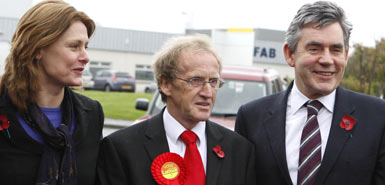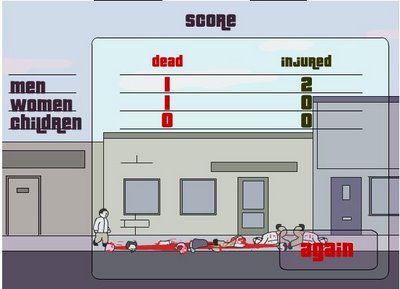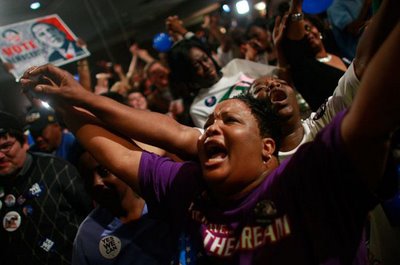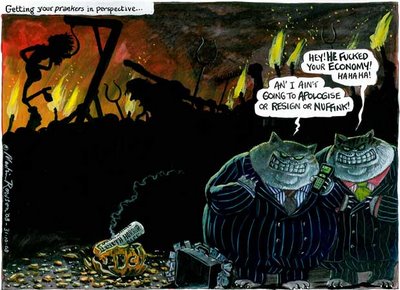 By Sunday, the Ross-Brand-Sachs story had just about burnt itself out. After all, the Mail and the others had won an extraordinary victory: Brand gone, the head of Radio 2 gone, Ross suspended and the BBC as a whole doing its best to alienate even its biggest supporters through the spinelessness which it was displaying towards those who wouldn't be satisfied until it is fully abolished. There's only so much you can make of it without even your own readers, including those that might have complained, becoming heartily sick of the boasting, pomposity and hypocrisy on stilts. If you need an indicator of just how scared the BBC had become, on Have I Got News for You on Friday night they even censored the word "twat", something almost unheard of, lest the Mail pick up on it. Back in the 70s Fawlty Towers itself featured the word twat uncensored, in one of the rearranged name plates at the very beginning. That's how far the clock has potentially been turned back.
By Sunday, the Ross-Brand-Sachs story had just about burnt itself out. After all, the Mail and the others had won an extraordinary victory: Brand gone, the head of Radio 2 gone, Ross suspended and the BBC as a whole doing its best to alienate even its biggest supporters through the spinelessness which it was displaying towards those who wouldn't be satisfied until it is fully abolished. There's only so much you can make of it without even your own readers, including those that might have complained, becoming heartily sick of the boasting, pomposity and hypocrisy on stilts. If you need an indicator of just how scared the BBC had become, on Have I Got News for You on Friday night they even censored the word "twat", something almost unheard of, lest the Mail pick up on it. Back in the 70s Fawlty Towers itself featured the word twat uncensored, in one of the rearranged name plates at the very beginning. That's how far the clock has potentially been turned back.
This though is still a huge opportunity for attacking the BBC. It just needed a new angle, one which the News of the Screws could happily provide: wages. According to them, various BBC executives receive in total £14.6m a year, with some earning more than the prime minister, instantly meaning that they could not possibly be worth it. Throughout the article there is of course not a single example of comparing like with like, such as how much executives on ITV, Channel 4, or hell, even Sky receive. There's a reason for this: as Mark Thompson himself points out, his counterparts on ITV and Channel 4 earn more than he does. From last year's ITV annual report for example (PDF), we learn that Michael Grade earned in total, taking in benefits as well as salary £1,934,000, more than double what Thompson did (page 110). John Cresswell (CFO) also with benefits earned more than Thompson, taking home £1,231,000. Dawn Airey (who has since joined Five) and Rupert Howell received basic salaries of £450,000 each, of which only four BBC employees, including Thompson, earned more, and one of those is paid out of the BBC's profits from worldwide sales. The ITV report also provides an explanation of why they are paid sums which to most of us are beyond our wildest dreams:
Market positioning of salary and other elements of reward is approached on an individual basis. The aim is for base salary to be set around market median, whilst recognising the need on occasion for an appropriate premium to recognise superior talent. The Board is of the view that a senior executive team of high calibre is critical to developing and delivering the Turnaround strategy and to delivering long term value. Therefore, in a number of instances this year, senior individuals with exceptional industry knowledge and commercial skills have been recruited to the Senior Executive team, and the Committee has judged it appropriate to pay a talent premium.
In line with the majority of employees and senior executives, executive directors’ base salaries are reviewed on an annual basis, effective from 1 January. The salaries of Michael Grade, John Cresswell, Dawn Airey and Rupert Howell remain at market competitive levels and therefore the Committee determined that they would not receive any increase at 1 January 2008 over their 2007 salaries. The salaries of Dawn Airey and Rupert Howell (basic salary of £450,000 per annum in each case) were market competitive at the time of their appointments in October 2007, and have not been subject to increase since then.
In other words, most of those being castigated for their earnings out of the public purse could if they so wished most likely earn more. Jonathan Ross was an one-off, and one which is hardly likely now to be repeated.
This isn't to say that there shouldn't be concern over the largesse at public expense, or that all of those getting wads of cash are worthy of it: Peter White's salary of £220,000 for promoting the digital switch-over is completely ridiculous. Speaking of ridiculous, that is what can only be said of Simon Cowell's apparent remark to the newspaper that "these salaries are crazy". He would know about crazy salaries: according to reports, he earns £20.5 million for presenting American Idol, or £6 million more than the entirety of the BBC list. Who pays him such a ludicrous sum? Fox, owned by the same parent company as... the News of the World. That is also without taking into account how much he's paid by ITV, of which BSkyB, controlled by Rupert Murdoch, has a 17.9% share in. Add in comments by Esther Rantzen, formerly of the BBC parish but who is now rightly not considered worth a penny of anyone's money, and also Nick Ross, also no longer working for the BBC, and you have chutzpah defined.
We all know why Murdoch and his ventures target the BBC so: it stands in the way of his complete dominance of the British media. Through its quality and impartiality, it shows up his offerings for what they are: cheap and ludicrously right-wing. One thing you don't see however is politicians prostituting themselves at the feet of Mark Thompson, as Tony Blair once did and David Cameron now is. Cameron in the summer, as we learned a couple of weeks back, accepted private jet flights from Murdoch's son in law, Matthew Freud, to go and visit Rupe on his yacht, although Cameron strangely forgot to mention they were to see Murdoch in the register of member's interests. This same man was last week demanding full transparency from the BBC even whilst he himself could not manage it. As for what Cameron and Murdoch discussed we don't know, but it seems unlikely that it was their respective health. After all, after Cameron's otherwise piss-poor conference speech, the Sun had Cameron as Bob the Builder on their front page, ready to fix our broken society with a few choice implementations of mortar.
No surprises then that Cameron is already repaying the favour, deciding upon the pages of the Sun to further pursue the BBC. If Murdoch or the Sun's editors were hoping for a full-throated denunciation of everything the BBC does though, then they haven't got it. If anything, Cameron goes out of his way to be fair to the corporation, saying he's got nothing against the way the BBC is funded. Undoubtedly this is partially down to Cameron not being about to burn bridges which he still needs to cross to get across to the public; once he's in power, which still looks highly likely, he can do whatever he likes, and a highly cut down settlement for the licence fee under the Tories seems odds on. He acknowledges this when he writes:
With ITV doing less and less politics, and with newspaper readership in decline, the importance of the BBC in general — and the big audience evening news programmes in particular — for political parties trying to get their message across cannot be overstated.
Ah, but the BBC is still biased, after all:
But, I can hear the cry, what about the left-wing bias?
My answer is: yes, the BBC does have what even Andrew Marr called an “innate liberal bias”, principally because it does not have to behave like a commercial organisation and make its money from scratch every year.
That tends to make the BBC instinctively pro-Big State, distinctly iffy about the free market and sometimes dismissive of a conservative viewpoint.
I’ll never forget, some years ago, sitting next to a BBC presenter at a function and being told it was just about all right to have Conservative politicians on the radio, but “there weren’t really any you would want to see socially”.
Yep, Cameron's evidence for the BBC's bias amounts to a BBC presenter telling him that there are no Conservative politicians you'd want to see socially, which has to be the biggest statement of the blooming obvious you're likely to come across. It can in fact be extended across politicians as a whole; how many can you name that you'd like a drink with, and that's excepting those you'd like to meet so you could physically assault them. As others have pointed out, the Tories didn't have many complaints about the BBC's coverage whilst Gordon Brown was doing so badly, but once George Osborne was in the soup over his own dalliances on yachts the familiar cry went up again of how the BBC was biased against them.
Finally Cameron does get to the point:
The BBC has lost touch with the values of the people who support it through the licence fee. How could anyone who works at an organisation that prides itself as socially responsible possibly have approved broadcasting the sick telephone calls made by Jonathan Ross and Russell Brand?
Because it went out past the watershed, involved individuals known for their near the knuckle comedy and was a ridiculous scandal created by the right-wing tabloid press? This social responsibility garbage, as put forward by the Tories' Jeremy Hunt, is censorship in a modern form. It may have lost touch with the values of the 35,000 that complained, but it hasn't with the however many thousand that joined Facebook groups in protest at the overreaction, or the millions that didn't complain.
It’s become bloated with many of its executives overpaid. The licence fee has gone up by 15 per cent on top of inflation since 1997.
Jonathan Ross’s £6million annual contract costs the equivalent of what 43,000 people pay in their licence fee.
Is it really the job of the BBC to pay these sorts of figures?
Shouldn’t they rely on the kudos of the platforms they have — after all there is no real national commercial equivalent to Radio 2 — to attract and keep talent?
And while we are at it — on the kudos of the BBC — why on earth is the director-general paid over £800,000 a year?
More than 50 people at this great public institution get more than the Prime Minister.
I simply don’t believe these kinds of salaries are necessary to get the best candidates. These are some of the best jobs in British broadcasting and it is a huge honour to be asked to do them.
The BBC of course doesn't decide how much the licence fee should go up - the government does, so Cameron should blame them if he wants to apportion it. Relying on kudos rather than remuneration is laughable, as is the idea that individuals now will be satisfied with the "honour" of the job they're in rather than the pay. If they can get more, substantially more at least, they will go elsewhere, hence why all of those competing for the talents tend to pay around the same. The very top jobs are undoubtedly something of an honour - Thompson if he had stayed at Channel 4 could be getting £1,211,000 (PDF), as his successor does, when his benefits are taken into account, instead of the over £800,000 he gets at the BBC. Any less and he might well decide he could be doing better.
The BBC has become oversized and over-reached itself.
What on earth was the BBC doing taking over the Lonely Planet guides and threatening other travel guide publishers with unfair competition?
Why is it now planning to take on struggling local newspapers with its plans for local online video news?
Cameron does have a point on the Lonely Planet takeover, which was just inviting deserved criticism. He's less right however on the struggling local newspapers, most of which have no one to blame for their plight but themselves, or rather, their owners. As Nick Davies pointed out in Flat Earth News, the "grocers" have been more concerned with paying their shareholders dividends than investing in journalism, with the result being that with advertising increasingly going online, there is no money to provide anything approaching a decent local service. The BBC is just moving into an area which has been abandoned by others, including ITV, and likely to be providing a service which few others are prepared to.
The BBC needs a vision that goes beyond chasing ratings for their own sake.
As our pre-eminent public service broadcaster it should set the standards in quality TV. The mission must be to attract large audiences to quality programmes, not large audiences by going to the lowest common denominator.
The argument that the BBC needs to win big ratings on BBC1 to prove that it is providing value is bogus.
The BBC should be judged on what it does to promote excellence in all it does and should justify its existence and funding on the basis of its reach — how many people use different parts of the product — rather than on nightly ratings figures.
Now we're onto the quality versus ratings argument. Quality doesn't have to equal boring, but that's undoubtedly what some would like to limit it to, with worthy documentaries and news programming and little else, closer to the PBS model than the BBC's current one. This is fine as far as it goes, and the awfulness of much of the output on BBC Three, for instance, which with the closing of could be split into providing more funding for BBC Four and for journalism is an attractive proposition. How though does Cameron define "quality"? If it's attracting large audiences to the likes of those worthy documentaries and news programming, then it's just simply not going to happen, as they have always been, with the exception of nature documentaries, niche products. They're not going to get bigger audiences without monumental advertising campaigns. After all, the BBC does justify its existence on how different people use different parts of the product, as Cameron puts it: thanks to the licence fee it has been at the forefront of developing an online presence, and noted the possibilities for it far before ITV, Sky or the likes of the tabloid newspapers did. That would doubtless under any cut in the BBC's licence fee be one of the first things to suffer: it would be pushed into defending its core audiences, and at the moment that would exactly result in the further cutting of news programming and those documentaries, because that's the way the entire TV industry is going. This is where Cameron has to decide exactly what he wants, and at the moment he doesn't seem to have much idea.
We also need to look at how the BBC is regulated. The BBC Trust has been an improvement on the previous BBC governors.
But if people have a complaint about standards, should they not be able to complain to a body that is properly independent of the BBC?
And when decisions are taken about salaries paid to senior management, should they not be reviewed by an external body to avoid any charge of cronyism?
Like the Press Complaints Commission, for instance, on the boards of which editors and others from the industry sit? Giving Ofcom oversight over the BBC is potentially the next move, but when Ofcom has already put its own agenda firmly on the table over its determination that the licence fee should be top-sliced, something that Cameron as yet does not support, and when it gives the go ahead to ITV to slash its local news output, why should anyone believe it would be any better than that currently provided by the Trust? As for the salaries paid, the BBC Trust has already investigated them after the Ross controversy, and found that it was paying for the most part the same as the market rate.
The squeezing and crushing of commercial competitors online or in publishing needs to be stopped. We need the BBC, but we also need healthy competition to the BBC to boost choice and drive up quality.
Above all the BBC needs to be given a clear remit — the pursuit of excellence.
Like that provided presumably by Cameron's former employer ITV - on which I can honestly say that there is only one programme I ever watch - the wonderful Harry Hill's TV Burp, a commentary on other television programmes. The BBC already pursues excellence - a slight pruning and it would be even better, but who honestly believes that Cameron or his sponsors at the Sun would only go that far? Even further reason to truly fear and oppose both the current attacks on the BBC and the potential of a Conservative government.Labels: BBC, BBC bashing, BBC funding, David Cameron, fisks, News of the World, Rupert Murdoch, Scum-watch, Sun-watch
